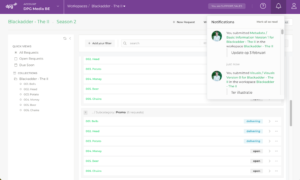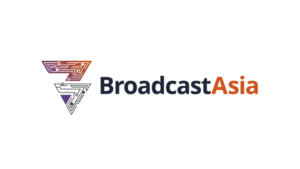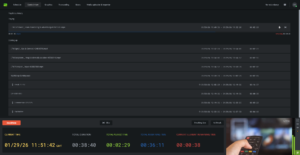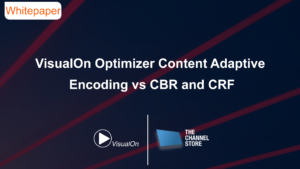Accedo – ECOFLOW: Helping to steer the streaming industry towards a sustainable future

François Polarczyk, Sustainability Director, Accedo
Focus and momentum around sustainability in the streaming industry has been visibly building over recent years. During this time, a number of organizations such as Humans Not Robots, Greening of Streaming and DIMPACT, have formed with sustainability as their raison d’être. Their work is doing much to broaden industry knowledge around the topic of sustainability. Additionally, there is a growing willingness among media organizations and technology vendors to reduce their carbon impact and contribute to making the entire value chain more sustainable.
However, to make a real difference and reduce their carbon impact, media companies need increased visibility on the energy consumed at each stage of the value chain. This is currently challenging not least because the value chain is highly complex, but also because of the lack of an industry-wide standardized framework for collecting, reporting on and improving sustainability metrics. Without such a framework, it’s difficult for individual companies, or the industry as a whole, to advance the vision of a sustainable streaming industry.
Understanding the current state of play
Opinions on energy efficiency in streaming remain divergent, data is all too often weak, and significant supplier challenges make it difficult to build a clear understanding of the present situation. And without clarity around where you currently stand, it’s impossible to know what impact changing the various parameters in the value chain will have. The need for both deeper insight into impact, and a unified approach to what and how we measure impact is clearly evident.
It was with these challenges in mind that Accedo partnered with Humans Not Robots, a cloud analytics platform for sustainability, to develop the ECOFLOW project. The initiative, which was part of the IBC 2024 Accelerator Programme, set out to increase certainty and information about the energy use of key components in the streaming value chain, and understand how they react under different conditions. The project findings are being used to help explain and educate on measurement guidance as well as forming the foundation for defining optimal strategies for energy efficient streaming and audience engagement for the future.
Power of collaboration
When tackling a challenge of this scale and complexity, collaboration is absolutely critical. This is exactly why the Energy-Conserving Optimization for Future-ready, Low-impact Online Workflows project, or ECOFLOW for short, gathered leading sustainability streaming media organizations and initiatives together. Accedo and Humans Not Robots (HNR) co-led the project which also involved partnership working with leading companies from across the video streaming ecosystem. The contributing organizations represented every corner of the industry, from sustainability experts Greening of Streaming, DIMPACT, Fraunhofer FOKUS, the EBU and the IET, to broadcasters BBC, ITV, and RTL NL, as well as technology vendors Quanteec, Bitmovin and Cognizant.
The success of this collaborative initiative, which was a first of its kind for the industry, proves that when streaming stakeholders with a shared goal collaborate, we can make great strides.
ECOFLOW design: measure, impact, educate

The project was structured to evaluate, reduce, and raise awareness around the environmental impact of streaming. The initiative was organized into three core working groups, each with specific, measurable objectives. The first group, ‘Measure’, led by HNR, aimed to quantify energy use and carbon footprint across the supply chain, whilst increasing the knowledge available in the specific area of display devices. This foundational work provided valuable, actionable data that supported the goals of the other groups.

The second group, ‘Impact’, led by Accedo, was tasked with helping broadcasters test and compare energy-saving features across their operations. This hands-on approach, using a specifically developed demo app, enabled the group to evaluate the effectiveness of these features while fostering a greater understanding of sustainability among audiences.


The third group, ‘Educate’, had the task of sharing knowledge and progress made by initiatives like Greening of Streaming, EBU, and DIMPACT, to advance sustainability knowledge across the industry. It also had the role of highlighting key barriers to sustainability identified during the project and ensuring that stakeholders could overcome them. The group also worked to educate individuals, including CEOs, engineers and sustainability officers, working within broadcast and media companies to deepen their understanding of sustainability frameworks, challenges and best practices, to empower them to make better decisions.
Project findings and next steps

The ECOFLOW project marks a significant step forward for the industry, providing valuable insights and a foundation for further work to be done. A key focus was to refine our understanding of energy consumption, with particular attention to data from CDNs and cloud services, both critical elements of the streaming supply chain. However, even as the project drew initial conclusions, it became clear that these efforts had only begun to explore the full scope of the project. It very quickly became clear that the work started by ECOFLOW would need to continue beyond IBC to make a lasting impact.
Perhaps unsurprisingly, a key finding of the project was that to achieve a comprehensive understanding of environmental impact, there needs to be active participation across the entire value chain, from end-to-end. One of the most significant challenges we encountered was getting the necessary data from various suppliers. While the involvement of large media organizations undoubtedly helped raise visibility, there remained a lack of willingness among some suppliers and technology providers to share data, even with the influence of key industry players.
The findings also show that for meaningful and impactful data, there is a need to include both attributional and consequential approaches to data collection and analysis, which together can provide a more accurate view of current impact and how this might change over time because of certain actions.
The project also highlighted the organizational challenges within the industry. Although the ECOFLOW participants represent a committed group of innovators, they are still only a small part of the larger industry. For many companies, embedding sustainability as a key performance indicator remains an uphill battle, as the importance of reducing carbon impact has yet to permeate all areas of decision-making.
Looking ahead, the ECOFLOW team is already taking steps to carry the project’s momentum forward and advance ECOFLOW’s objectives and reach. The group has already developed a microsite, www.ecoflow.tv, to host project data, findings, and recommendations, to serve as a resource for media organizations eager to take the next step towards becoming more sustainable. We’re all very aware that making the streaming industry sustainable is a long-term endeavor, far beyond what is possible to achieve in four months.
Through initiatives like ECOFLOW, we aim to build momentum and demonstrate the benefits of transparency and collaboration. While cloud giants hold much of the data and control over their energy footprint, industry-wide efforts like DIMPACT are fostering dialogue, setting benchmarks, and creating tools that encourage all stakeholders to engage in this transition. That said, we’re under no illusions—our project is just part of the solution. Collaboration is essential, and we’re hopeful that by demonstrating the benefits of sustainability and the risks of inaction, we can encourage greater openness. To that end, ECOFLOW is just the beginning, so stay tuned for further updates!









